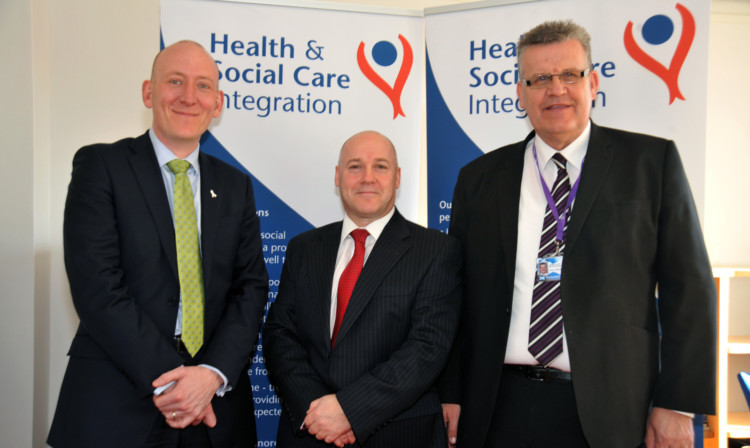The biggest shake-up of Fife Council and health services in a generation will not fix all the challenges facing health and social services overnight.
Given time, efficiencies will also lead to “inevitable” job losses in management posts.
However, the change will reduce some of the barriers between services and deliver services that are “right for Fifers and right for the future”.
That is the message from Fife Council and NHS Fife as the integration of NHS Fife and Fife Council’s social work adult services aims to improve the way adult health and social work services are delivered.
It means that over the coming years, GPs, hospitals, health workers, social workers, social care staff and others will work as one team ensuring the patient is at the centre.
Now, as Fife prepares for the integration, which officially comes into being on April 1 next year, a new, jointly produced booklet and web page has been launched to explain how it will work and to show that Fife is “ahead of the game” in its preparations.
It is more than two years since the then Health Secretary Nicola Sturgeon set out the Scottish Government’s plan to integrate adult health and social care.
The Government is putting legislation through the Scottish Parliament which states that, over the course of the next year, every health board and local authority across Scotland must integrate services.
This is part of a drive to improve the experience of those who use services and to address some of the significant social and financial challenges that accompany an ageing population with more and more complex needs as people live longer.
Known as the Public Bodies (Joint Working) (Scotland) Bill, it will receive royal assent at the end of next month and with that will mark the start of a 12-month countdown to legislation coming into effect.
In an exclusive interview with The Courier, key players in the joint health and social care integration shadow board explained how Fife is working to ensure it is ahead of the game next year.
Co-chaired by Fife Council’s executive spokesperson for health Andrew Rodger and Dr Scott McLean, executive director of nursing with NHS Fife, there is a drive in the region to ensure services are joined together, so that the person remains at the centre of the services delivered.
They explained that over the coming years, integration will see GPs, hospitals, health workers, social care staff, the voluntary and independent sector and many others increasingly work side-by-side to share information and take a much more coordinated approach to the way services are delivered and to support people to stay in their own homes, or another homely setting, as independently as possible, for as long as possible.
Dr McLean said: “In Fife we have agreed a partnership approach will be taken. By working as one team, we can help meet the aspirations of individuals so they can live safely and independently in their own home for as long as possible.
“I would encourage as many people as possible to pick up a booklet or log on to Fife Direct to get informed and involved in the conversation.”
Mr Rodger said: “Integration is about putting people first. It won’t fix all the challenges facing health and social work overnight but it will reduce some of the barriers.
“The launch of our information booklet is just the start of a bigger conversation we will be holding in Fife as we prepare to transform adult and older people services so we can deliver the right care, at the right time, now and in the future for the people of Fife.”
The new Guide to Integration booklet is available throughout Fife, including council and social work offices, hospitals, libraries and GP surgeries as well as at www.fifedirect.org.uk/integration where people can find information, FAQs and video clips from staff, care providers and users of services.
Picture by George McLuskie
